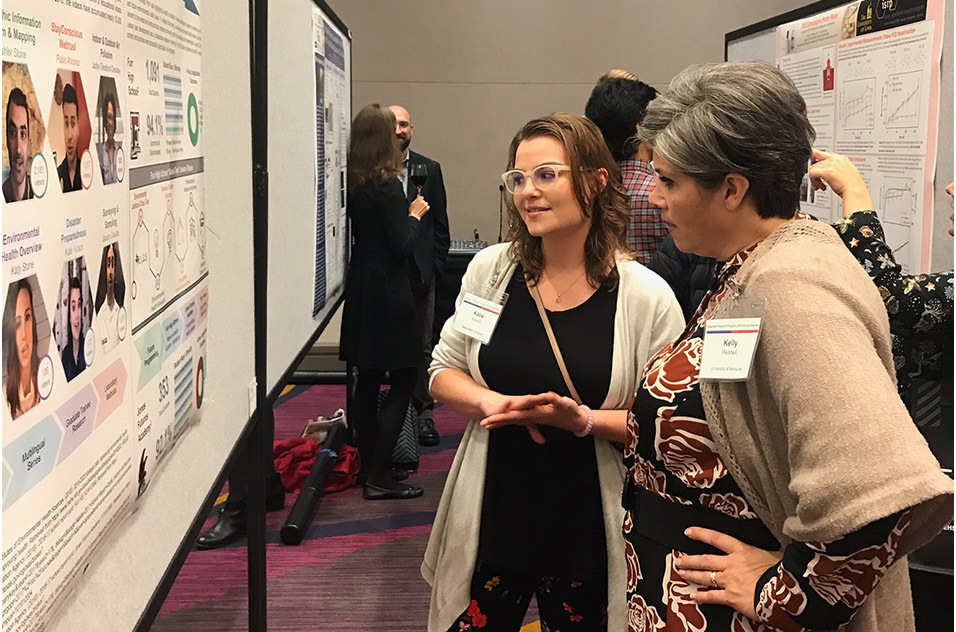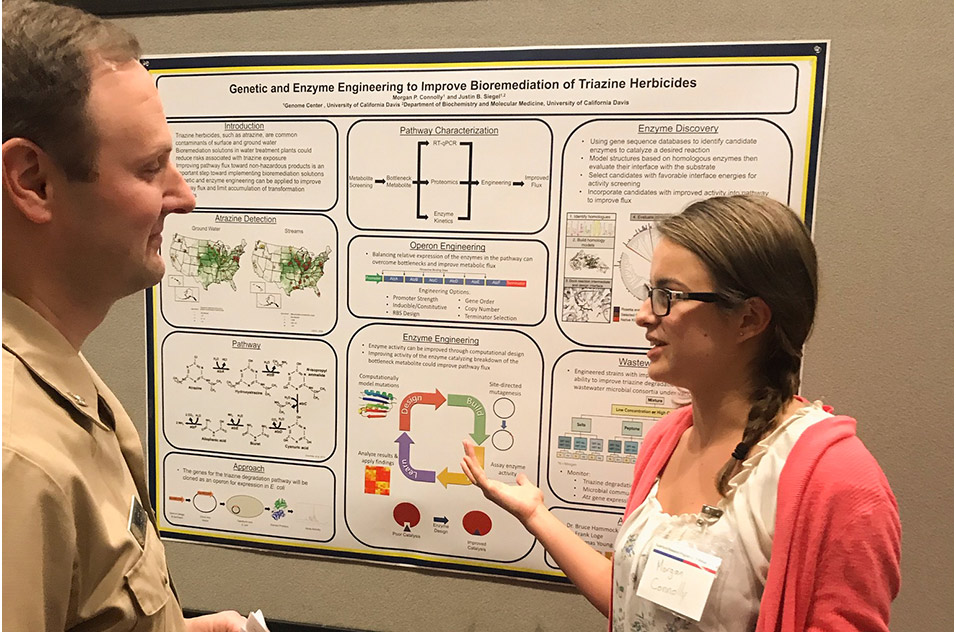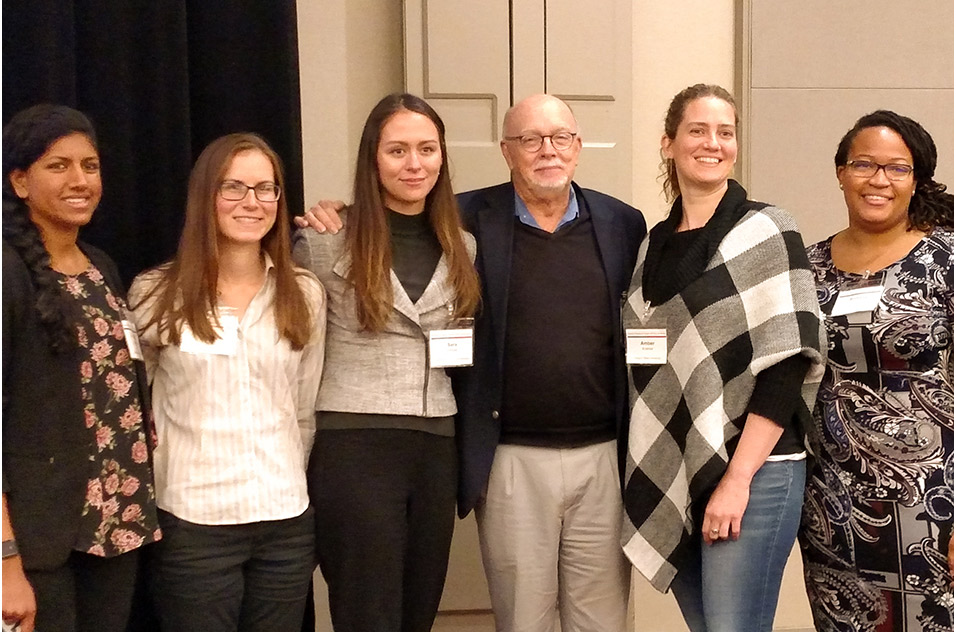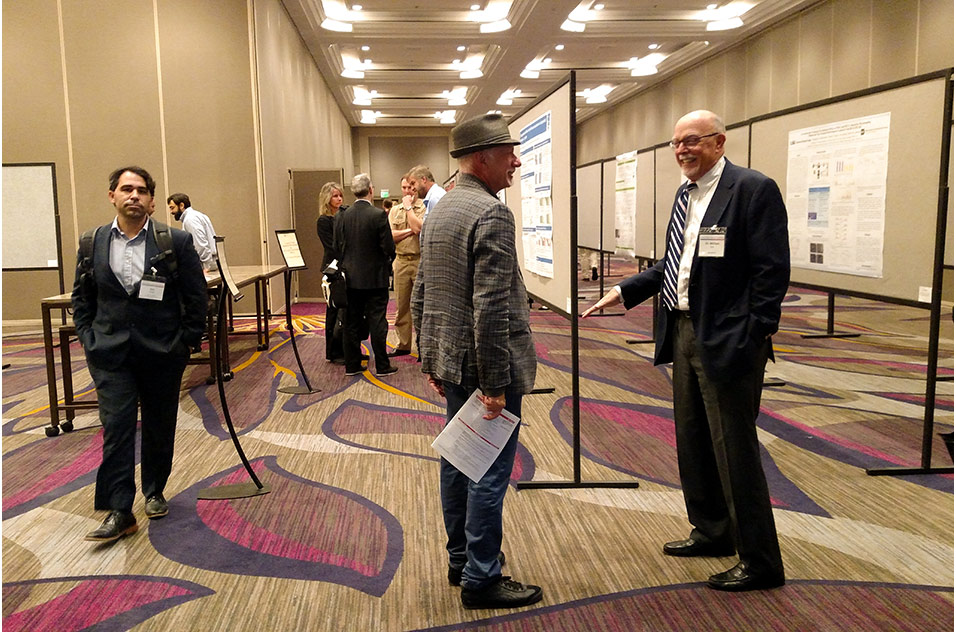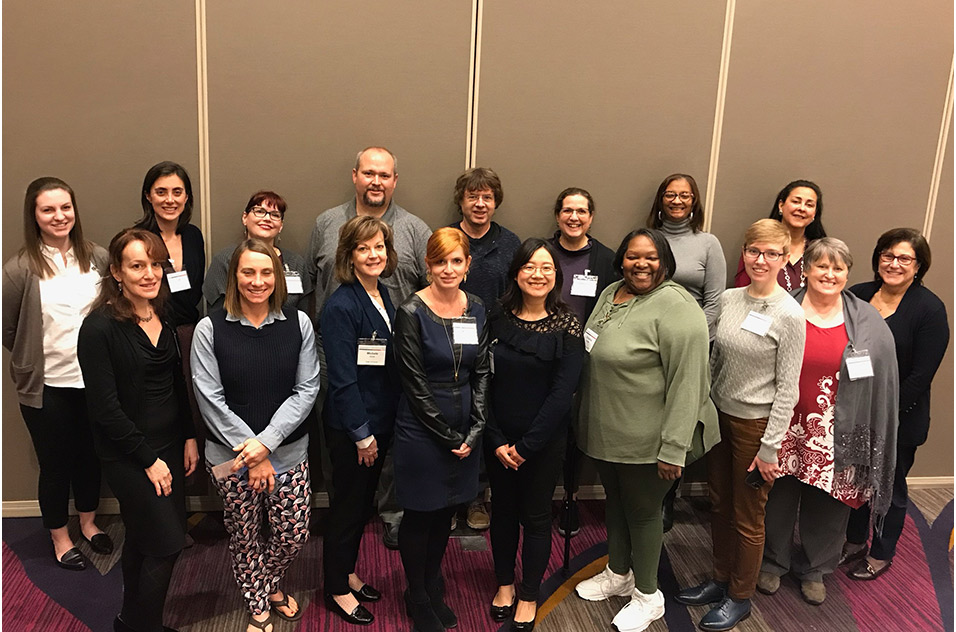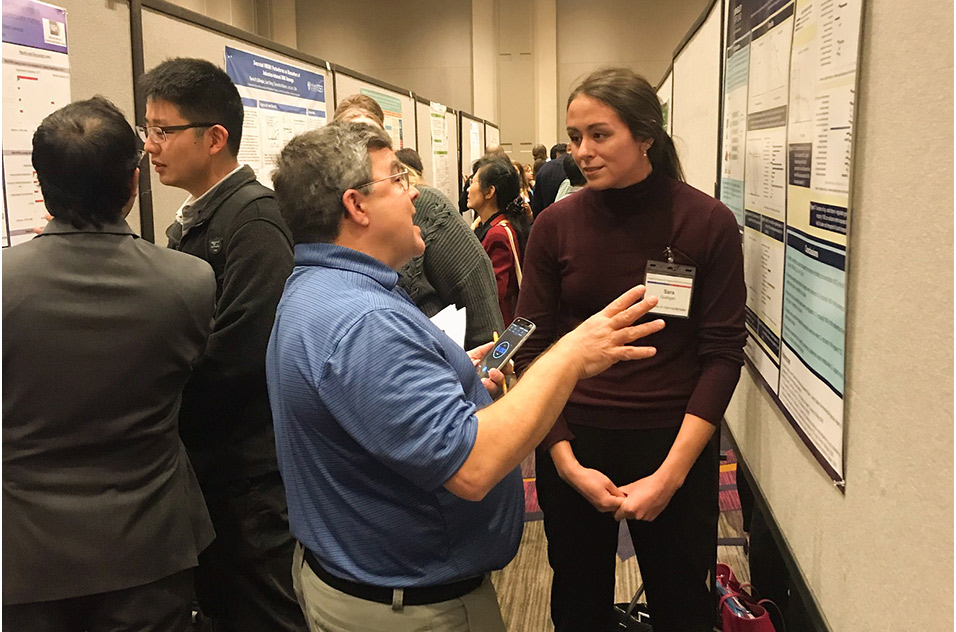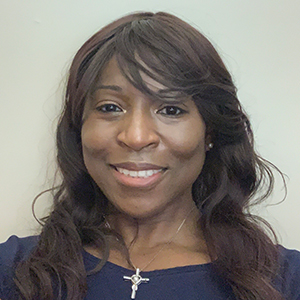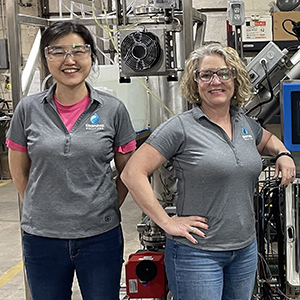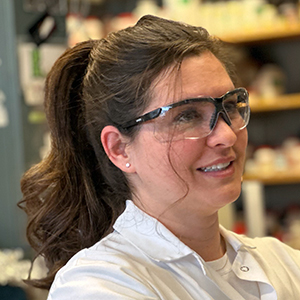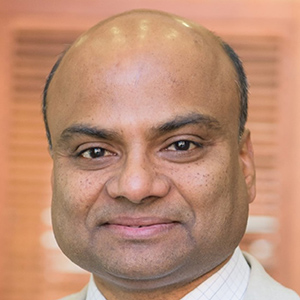The annual Superfund Research Program (SRP) meeting, held Nov. 28-30 in Sacramento, California, emphasized innovative research to promote environmental health, particularly research driven by early-stage investigators and trainees.
“This year we are highlighting the incredible successes of our trainees and how transdisciplinary research can lead to tangible impacts in the real world,” said SRP Director William Suk, Ph.D. The meeting was hosted by SRP centers at the University of California (UC) Davis, UC Berkeley, and UC San Diego.
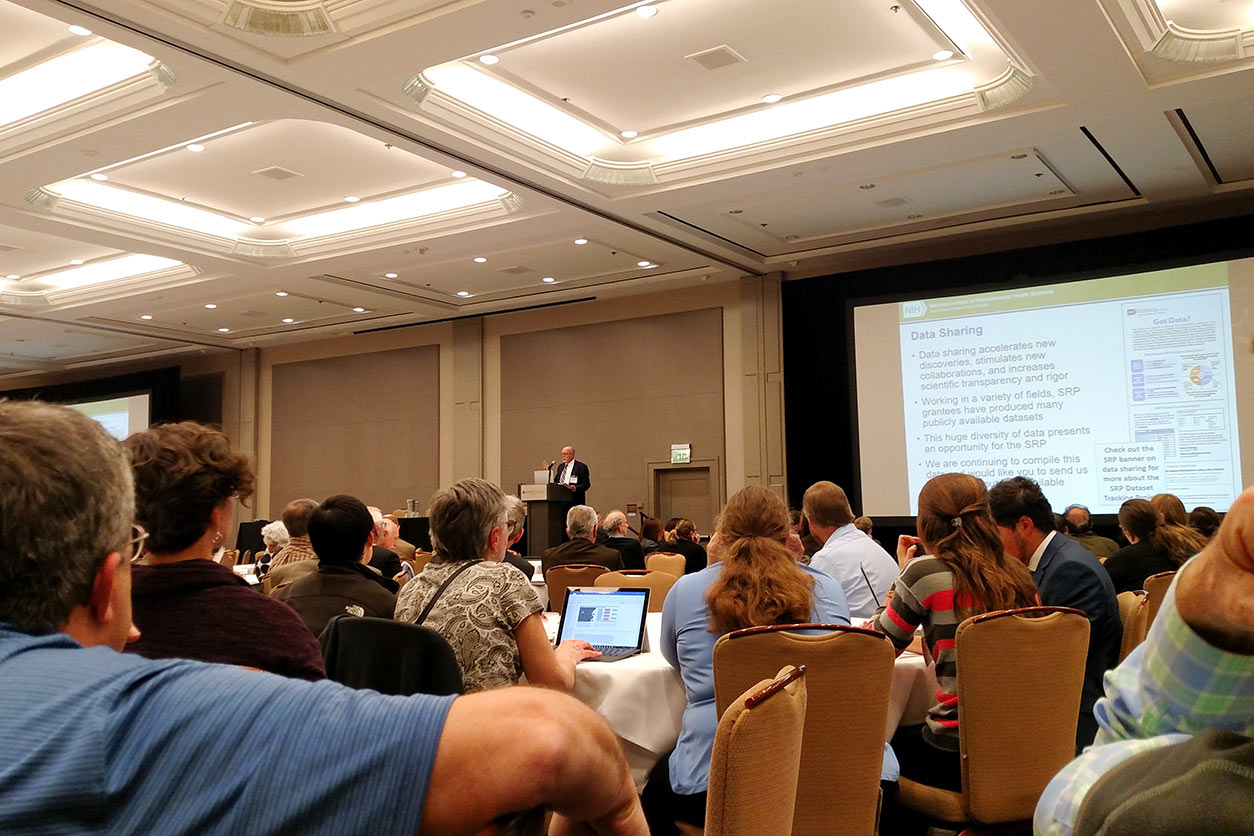 Suk welcomed attendees to the SRP Annual Meeting and emphasized the importance of training and highlighting trainee research. (Photo courtesy of Adeline Lopez)
Suk welcomed attendees to the SRP Annual Meeting and emphasized the importance of training and highlighting trainee research. (Photo courtesy of Adeline Lopez)Engaging with tribal partners
At a program for Research Translation and Community Engagement Cores, SRP grantees discussed culturally appropriate methods for addressing tribal needs and communicating risk with tribes and on affected tribal land.
Melissa Gonzales, Ph.D., from the University of New Mexico (UNM), described using traditional art and symbolism to communicate how exposure to uranium damages DNA, and how the nutrient zinc can help protect cells and restore their healthy function. Integrating multiple worldviews in research with Native communities requires balancing traditional views with western views, Gonzales explained.
A community partner working with the UNM center, Sarah Henio-Adeky, explained the need for and challenges of translating scientific concepts into the Dine language.
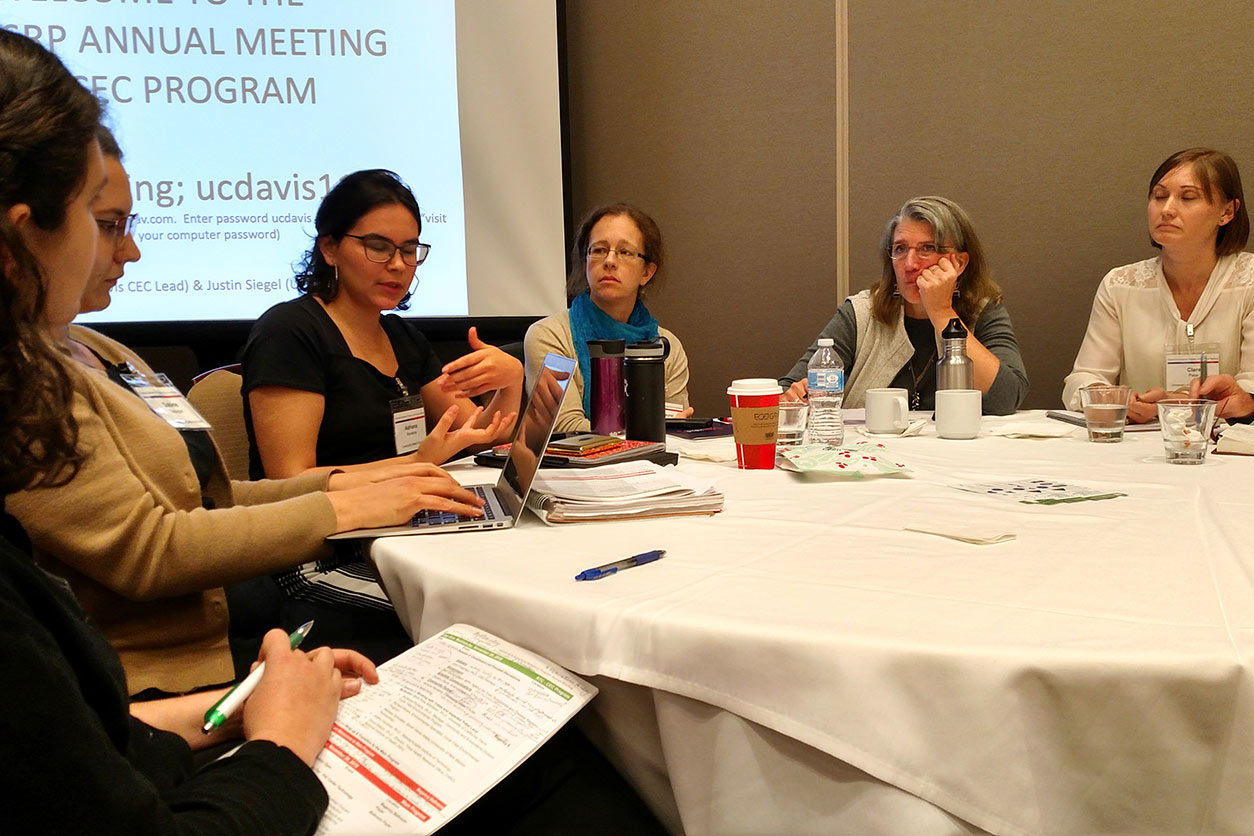 Participants in a break-out session discussed strategies for engaging with community partners and addressing their concerns. (Photo courtesy of Adeline Lopez)
Participants in a break-out session discussed strategies for engaging with community partners and addressing their concerns. (Photo courtesy of Adeline Lopez)The UC Davis SRP Center partners with the Yurok Tribe. “We use tribal knowledge of cultural and harvest practices to characterize unique pathways of exposure and potential health risks,” said Beth Rose Middleton, Ph.D., from UC Davis. “It is important that we accept tribal knowledge that the system is out of balance and find common ground with the tribe to address complex problems.”
Director of the National Institutes of Health (NIH) Tribal Health Research Office, David Wilson, Ph.D., said NIH works to engage and ensure input from tribal leaders across the nation, as well as to expand training opportunities for American Indian and Alaska Native Communities.
Training the next generation
Scientific sessions featured talks by graduate students and postdoctoral researchers. Among them were nine talks by KC Donnelly Externship Award Winners, including seven of the 2017 Winners.
Stephanie Kim, winner of the 2018 Karen Wetterhahn Memorial Award, described her work exploring how exposure to harmful contaminants affects cellular and molecular processes that lead to metabolic disorders.
Training opportunities in big data, nonacademic career opportunities, and academic survival skills were also presented. During a round table discussion, trainees networked and learned about career options in diverse fields.
Poster sessions offered them a chance to describe their research to SRP stakeholders and the public. Six trainees received awards for the best presentations, three each in the categories of biomedical and non-biomedical research.
(Adeline Lopez is a research and communication specialist for MDB Inc., a contractor for the NIEHS Division of Extramural Research and Training.)





